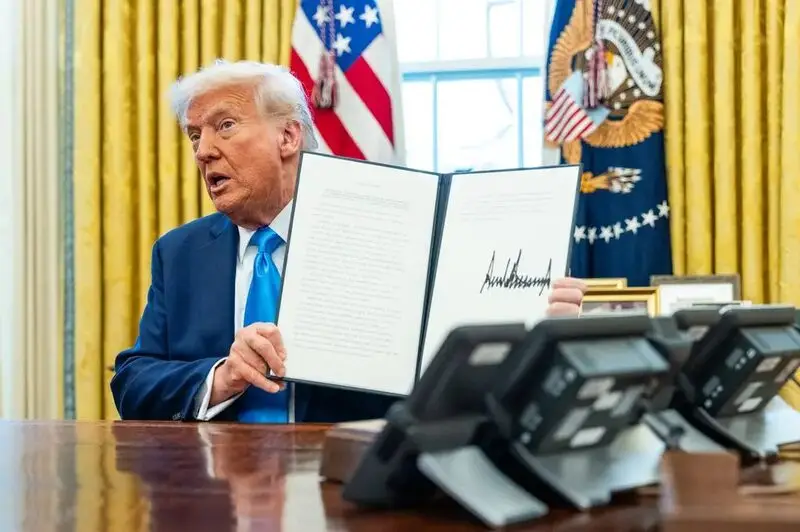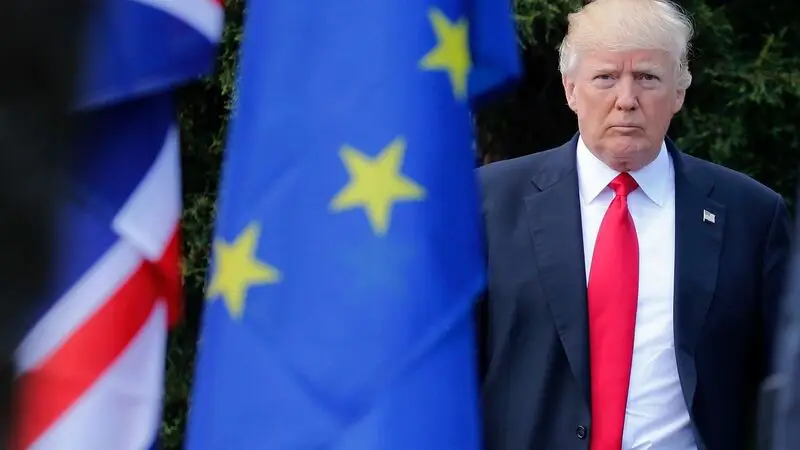Amid what is ongoing geopolitical uncertainty, the European Union (EU) is reportedly planning concessions it is willing to make to US President Donald Trump to ensure the removal of his recent tariffs. Indeed, the union is planning a ‘term sheet’ of those concessions, according to a new Bloomberg report.
Since his return to the White House, Trump has sought to balance trade for the country. Those import taxes have already hit the bloc and are poised to increase in early April. The move has gotten varied responses, with Jim Cramer recently coming to support the plan. Specifically, he said that the push for free trade has “cost us fortunes.”
JUST IN: 🇪🇺🇺🇸 European Union to make trade concessions to avoid President Trump's reciprocal tariffs. pic.twitter.com/0zoi1bIQr6
— Watcher.Guru (@WatcherGuru) March 28, 2025
Also Read: De-Dollarization: 10 US Sectors Vulnerable To Tariffs & Dollar Decline
EU Planning ‘Term Sheet’ of Concessions to Secure Trump Tariffs are Removed
Since his election win in late 2024, US President Trump has discussed the increased usage of tariffs in his second term. He had previously targeted the BRICS economic alliance. Specifically, he sought to end the collective’s ongoing de-dollarization efforts, securing the status of the US dollar.
However, they have since been extended as the administration seeks to balance trade. Now, the European Union (EU) is planning trade concessions in an effort to get US President Trump to remove those tariffs. Indeed, a new report notes that officials of the bloc are preparing a “term sheet” to limit those import taxes.

Also Read: White House Scaling Back Tariffs—Here’s What It Means for You
According to the report, EU officials were told there was no way for the new administration to halt recently imposed auto and reciprocal tariffs. Indeed, those are set to launch next week. Moreover, sources note that discussion on a potential deal for a reduction in the tariffs has since started.
Now, the European Commission has begun to outline deals for a potential agreement. Specifically, the term sheet would “set out areas for negotiations on the punitive trade measures, including lowering its own duties, mutual investments with the US, as well as easing certain regulations and standards,” sources say.






